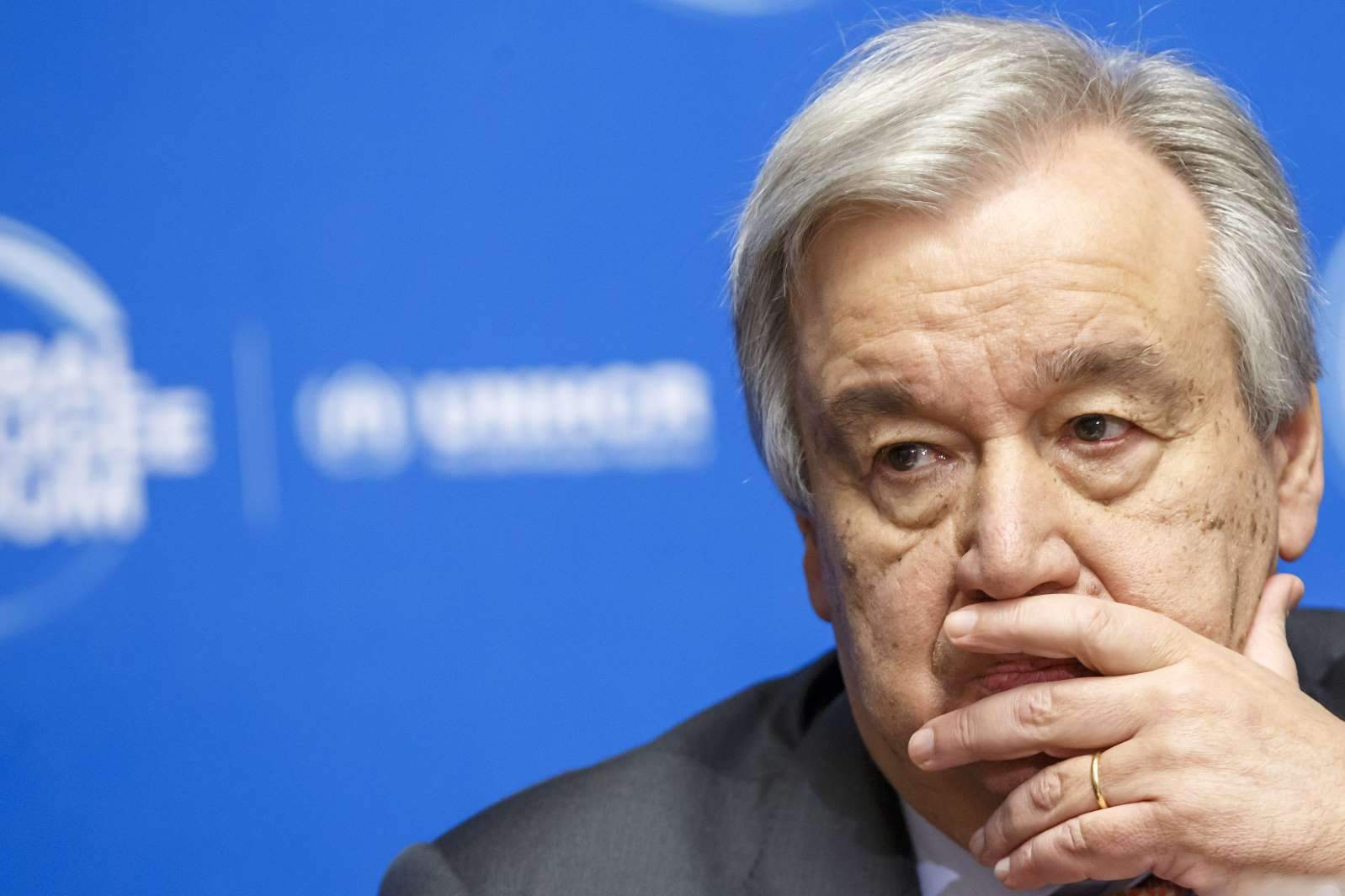UN chief urges action to end Syria conflict, support rights

(AP) — Secretary-General Antonio Guterres issued “a very strong appeal” Wednesday for a political solution to Syria’s nearly nine-year conflict, and he called for a global “push-back against the push-back” on ensuring human rights.
In a wide-ranging speech and question-and-answer session with diplomats from the 193 U.N. member states, Guterres painted a gloomy picture of a world where tensions are at their highest in years, mistrust is growing, new technologies are being abused and people face “an existential climate crisis.”
Speaking at the start of the United Nations’ 75th anniversary year, he warned that those threats endanger progress in the 21st century and said “the risk of a great fracture is real.”
Guterres pointed to devastating conflicts, terrorist attacks taking “a merciless toll,” a growing “nuclear menace,” rising inequality, and war and persecution forcing more people to flee their homes than at any time since World War II.
“Disquiet and discontent are churning societies from north to south,” Guterres said. “Confidence in political establishments is going down. Young people are rising up.”
He said decision-makers “continue to fiddle” about seriously tackling climate change as “our world is edging closer to the point of no return.”
Despite enormous benefits, Guterres said, “new technologies are being abused to commit crimes, incite hate, fake information, oppress and exploit people and invade privacy.”
“Artificial intelligence is generating breathtaking capacities and alarming possibilities,” he said. “Lethal autonomous weapons — machines with the power to kill on their own, without human judgment and accountability — are bringing us into unacceptable moral and political territory.”
He called for fresh efforts to bring order “to the wild west of cyberspace.”
Guterres used the General Assembly meeting to launch a “Decade of Action” to deliver U.N. goals for 2030 that call for ending extreme poverty, preserving the environment, achieving gender equality and achieving “a fair globalization, boosting economic growth and preventing conflict.”
Today, he said, the world is “off track.”
“At present course, half a billion people will still be living in extreme poverty by 2030,” he said. “And the gender gap in economic participation would have to wait more than 250 year” to close.
Guterres said he is deeply concerned about the different ways that respect for human rights are being eroded around the world.
“There is indeed a push-back in relation to human rights,” he said. “I think the push-back that we need is a push-back against the push-back.”
He pointed to the backlash against gender equality in many countries, saying that “women’s rights are human rights and ... it’s very important to fight the backlash ... and work seriously for gender equality.”
On Syria, Guterres stressed the need to move toward ending the conflict and said the first step must be to “unlock” the work of the committee established to draft a new constitution. Its second meeting in late November ended in failure because Syria's government and opposition couldn’t agree on an agenda.
Responding to a Syrian question about support for the country's reconstruction, the secretary-general said, “The truth is that ... in the absence of a more clear visibility of a political process, many donors and probably the most important donors, be it in the Gulf, be it in the Western part of the world, will be very reluctant to support a true reconstruction process.”
“So I think we need to work together to make the political process move forward,” Guterres said, and then to exert pressure to normalize Syria’s relations with the entire international community."
Photo: Provided by Associated Press U.N. Secretary-General Antonio Guterres attends the UNHCR - Global Refugee Forum at the European headquarters of the United Nations in Geneva, Switzerland, Tuesday, Dec. 17, 2019. (Salvatore Di Nolfi/Keystone via AP)











